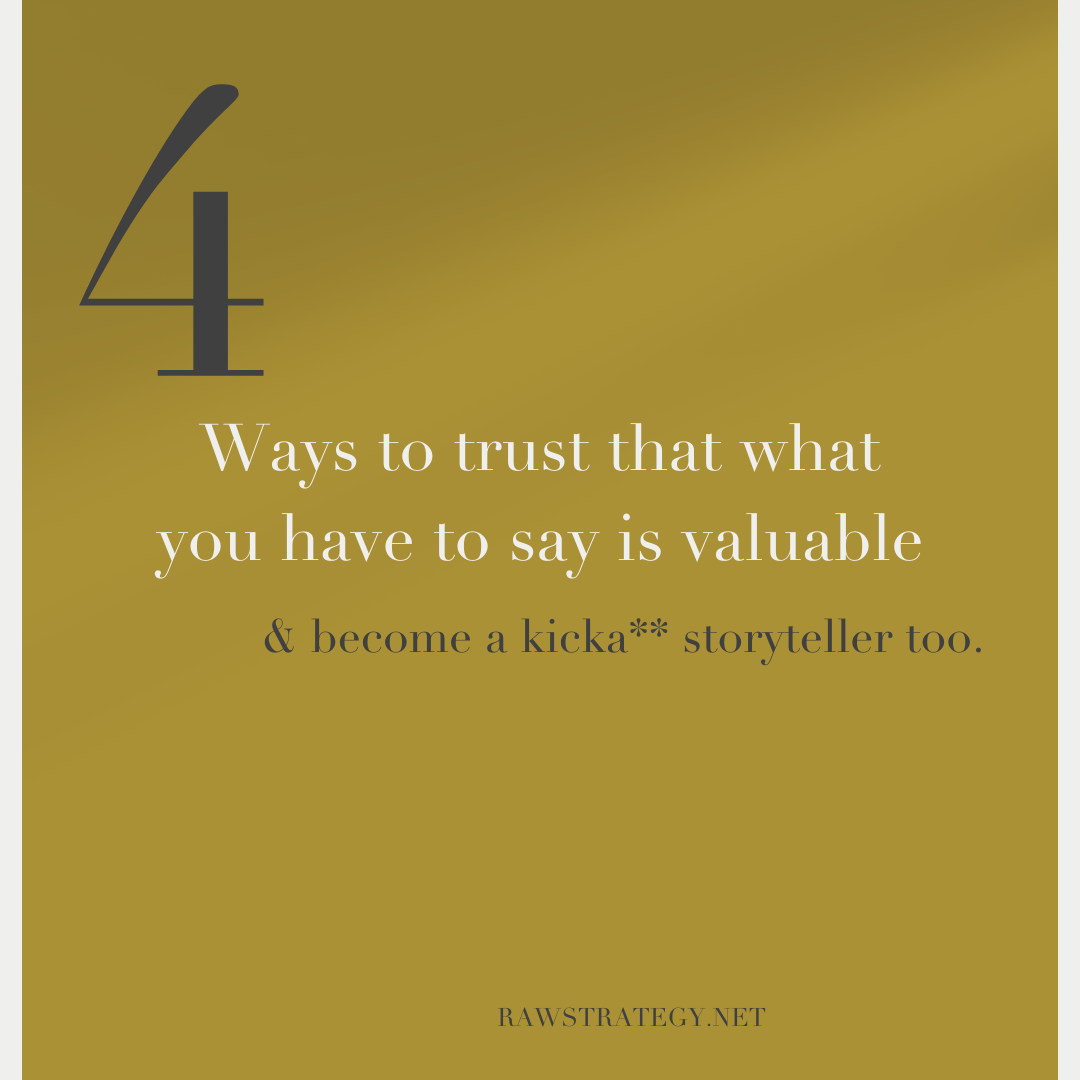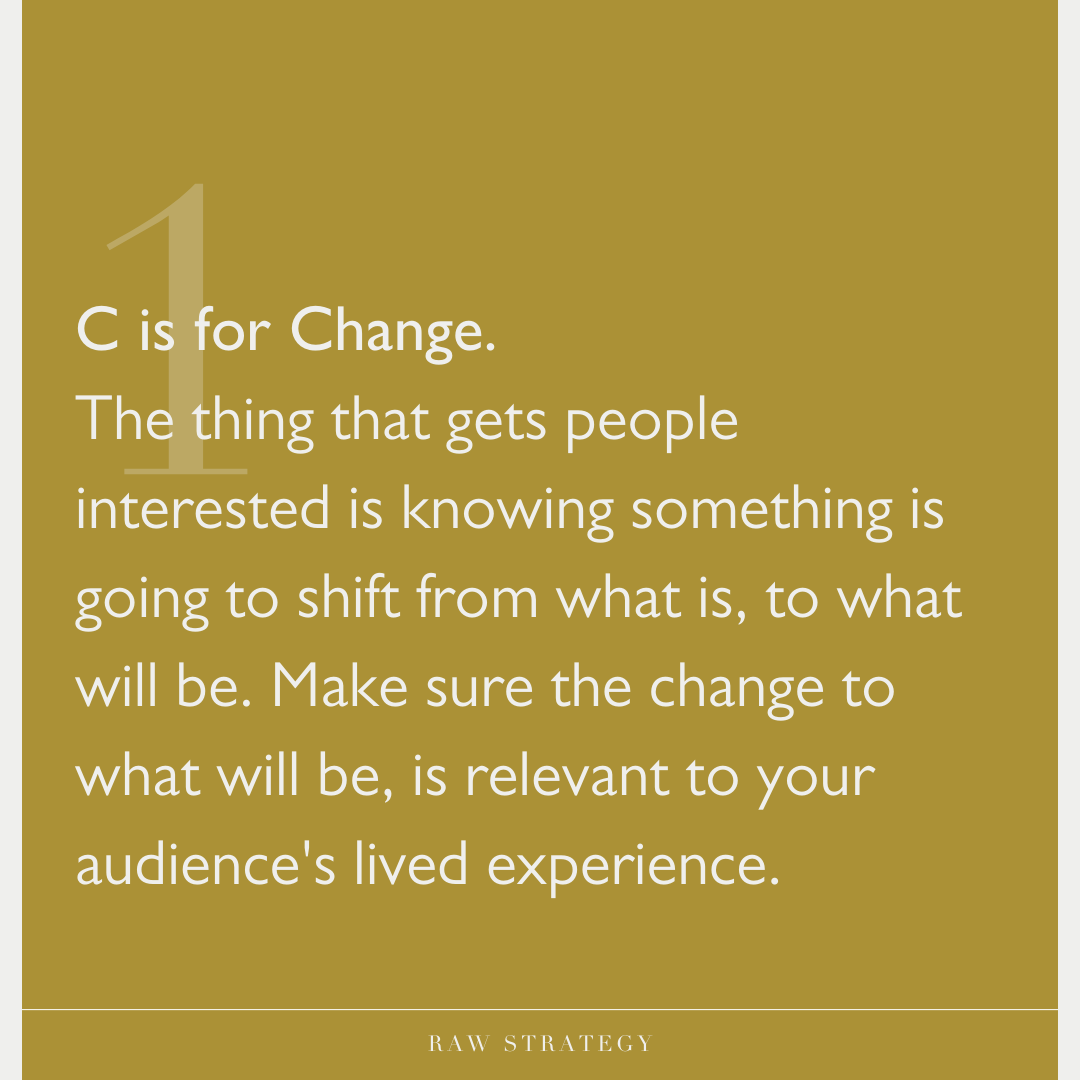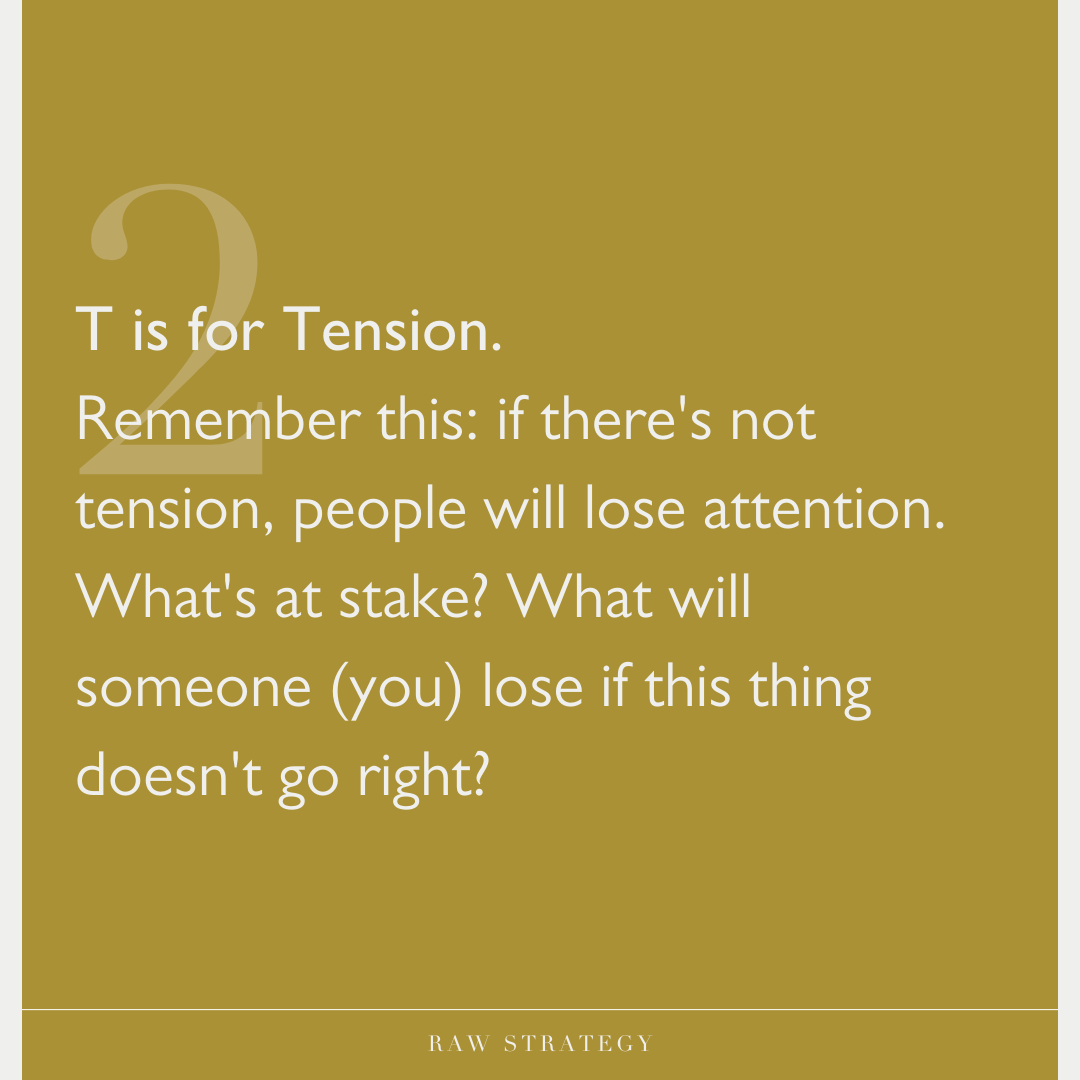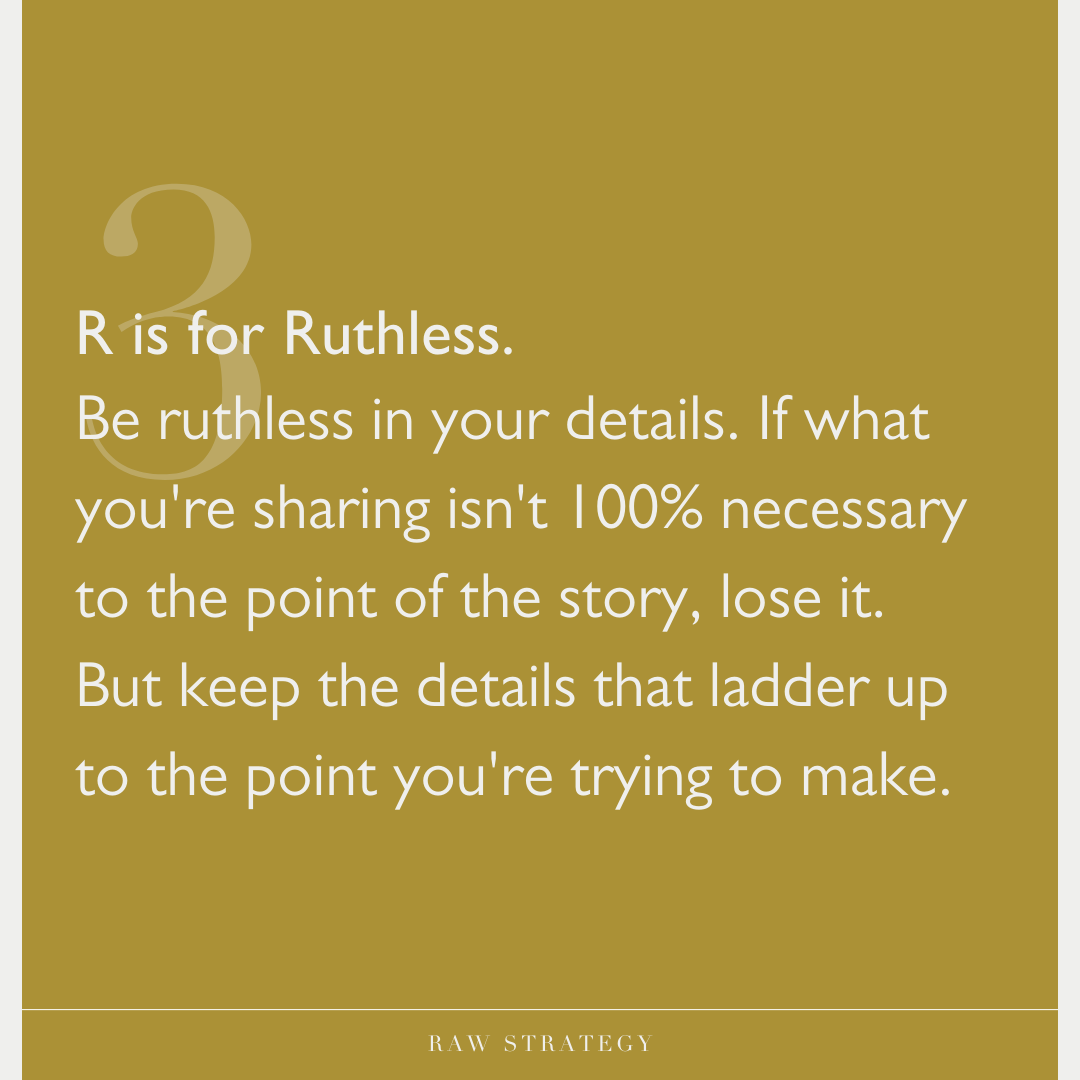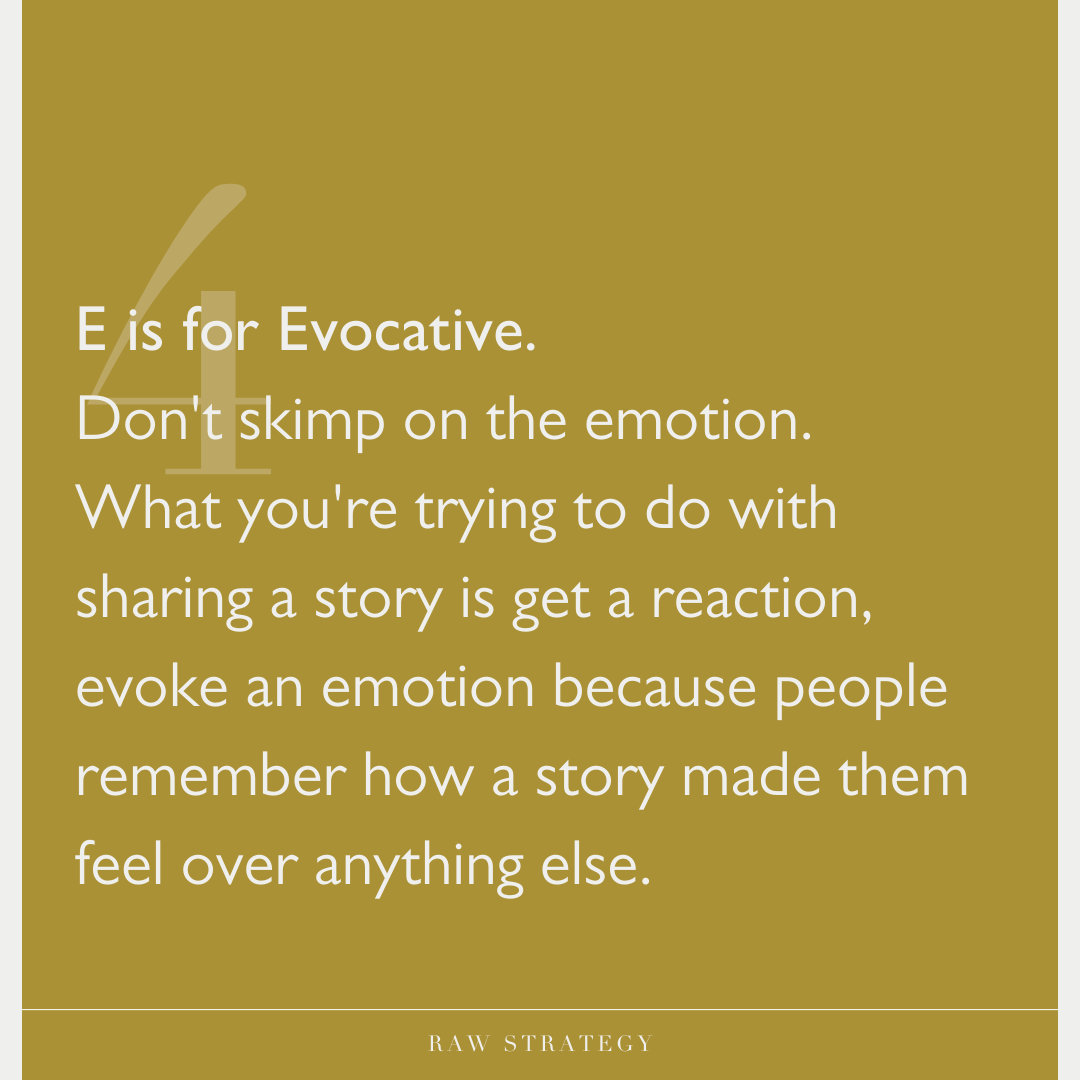4 ways to become a kicks** storyteller.
Have you ever watched someone tell a really good story? You're engaged, gripped from the start, cautiously waiting, brimming with expectation of what's next. And, then you look down, shoulders fold in because you wish you could tell a story like them, but you can't.
If you could, man would it be fun. People at work would want you around. Your metaphors alone would consistently move the needle on sales calls. Your boss would invite you to an important meeting because what you say makes so much sense. Your presentations would be entertaining, and people would start paying attention to you like never before.
Because when you tell a story, you have the ability to control the state of the listener. When you have control of their reaction, you can get them to have the epiphany you want them to have. It forces—or encourages—them to feel what you feel.
Here are 4 things you need to know to become a good storyteller, but really, 4 ways to trust that what you have to say is valuable.
C is for Change. The thing that gets people interested is knowing something is going to shift from what is, to what will be. Make sure the change to what will be is relevant to your audience's lived experience.
T is for Tension. Remember this: if there's no tension, people will lose attention. What's at stake? What will someone (you) lose if this thing doesn't go right?
R is for Ruthless. Be ruthless in your details. If what you're sharing isn't 100% necessary to the point of the story, lose it. But keep the details that ladder up to the point you're trying to make.
E is for Evocative. Don't skimp on the emotion. What you're trying to do with sharing a story is get a reaction, evoke an emotion because people remember how a story made them feel over anything else.
Need help? Reach out and book a free call. I’m here.
xo, Lindsay
